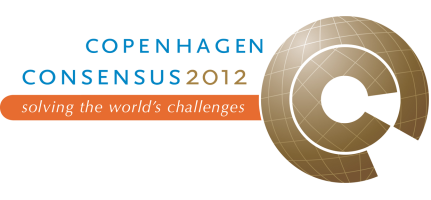Third Copenhagen Consensus: Corruption, Ackerman Truex
Working Paper
A Working Paper on Corruption has been written by Susan Rose-Ackerman and Rory Truex and released by the Copenhagen Consensus Center. The working paper used by the Expert Panel is available for download here, the finalized paper has been published in Global Problems, Smart Solutions - Costs and Benefits by Cambridge University Press.
Short summary
Policies designed to improve the quality of life for the poor and to spur economic growth often fail. A program that succeeds in one country or even in one village may not work in another. Promising experiments may not be capable of replication and may be impossible to scale up to cover an entire country. Reformers are often told: “One size does not fit all.” Yet, problems of poor health, low educational attainment, degraded natural environments, and violence and crime are widespread. Why shouldn’t similar policies work in various settings?
In their Working Paper for Copenhagen Consensus 2012 Susan Rose-Ackerman and Rory Truex argue that, over and above substantive differences, a key reason for cross-country differences in policy efficacy is the quality of government and the ubiquity of corruption and related forms of self-dealing by politicians, civil servants, and the private individuals and business interests with whom they interact. A policy that works quite well in one country may fail in another with lower quality governance.
Collectively, corruption can have crippling effects on development and human welfare. There is a strong correlation between the UN’s Human Development Index and perceived levels of corruption, as measured by Transparency International’s Corruption Perceptions Index. In general, countries with higher levels of corruption have lower levels of human development.
Susan Rose-Ackerman and Rory Truex examine different solutions to tackle corruption. The authors caution that, at present, there is a lack of good data on the relative effectiveness of most reform programs. Yet, even without definitive studies, some options look promising because benefits seem clear and the costs are minimal. Even if the benefits cannot be precisely measured, the rates of return appear large.
Perhaps the most often prescribed remedy for corruption is to increase top-down monitoring and punishment. Improved monitoring, whether in the form of an external auditor, an anti-corruption agency, or an international oversight body, increases the probability of being caught. There is some evidence that increased monitoring does have positive effects on government performance.
The natural complements to external monitoring and punishment by formal organization are increased transparency and bottom-up accountability. Citizens have an interest in fighting corruption, and if given a voice, they can be a potent force for its reduction. In 2004, the Ugandan government began publishing the details of education funding processes in local newspapers, allowing citizens and schoolmasters to better monitor the release of funds from higher levels of government. The analysis shows that communities with better access to newspapers, as well as more informed schoolmasters, experienced lower leakage rates, and that the introduction of the newspaper campaign as a whole substantially reduced leakage rates and associated embezzlement. The release of such vital information to citizens may require little more than a website or a well-placed newspaper story, and the potential returns may be quite large.
Internal bureaucratic reorganization and the improved administration of public programs are equally, if not more, important to the anti-corruption calculus. If bureaucrats have easy access to rents, an abundance of corrupt partners, and a low public service ethos, self-dealing is nearly inevitable. Internal reforms, such as meritocratic recruitment and competitive public salaries can help ensure that those situations do not occur.
When the state carries out large-scale projects, signs contracts, and sells assets, such deals produce substantial financial gains that are difficult to monitor. Hence, grand corruption may be a serious problem. Reforms in this category could include both more competitive and transparent bidding processes and careful evaluation of what is being bought and sold in order to be sure that these choices are not distorted by self-dealing officials.
However, if government bodies are riddled with corruption and inefficiency, a final drastic remedy is to remove certain tasks from the public sector completely, moving their provision to the private sector. Firms have taken over basic service provision in parts of India, tax collection in Uganda, transportation in Mexico City and parts of customs inspection in over fifty developing countries. The existing record suggests that privatization is a high risk, high reward strategy— some reforms seem to have substantially reduced corruption; others appear to have made the situation worse.
The authors stress the need to focus not only on controls inside states where corrupt deals occur but also on international forums. At the international level, reforms should go beyond the weak enforcement mechanisms in existing treaties and contracts.

